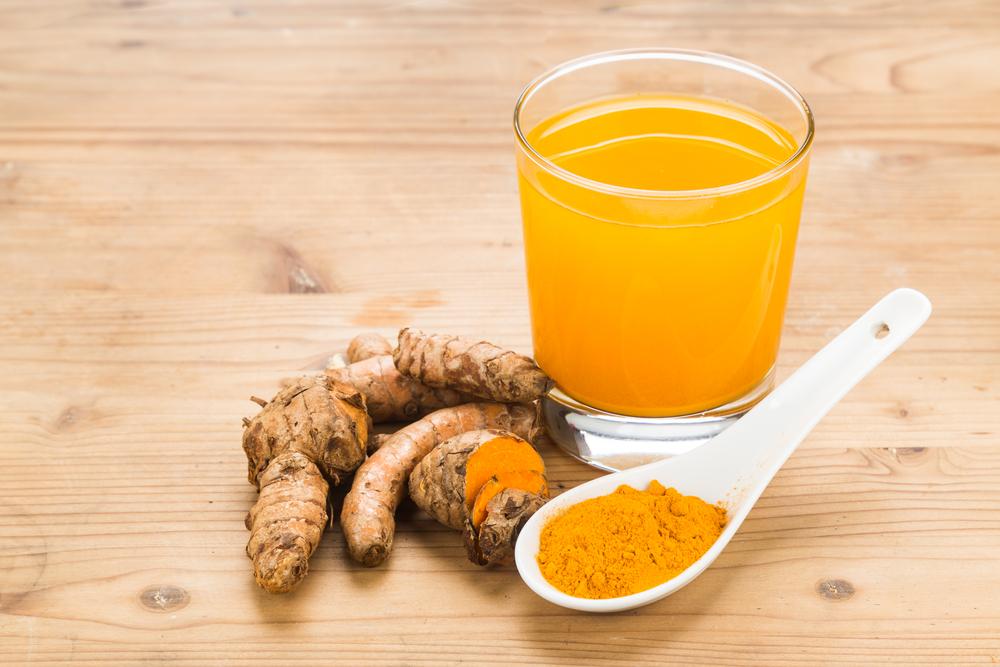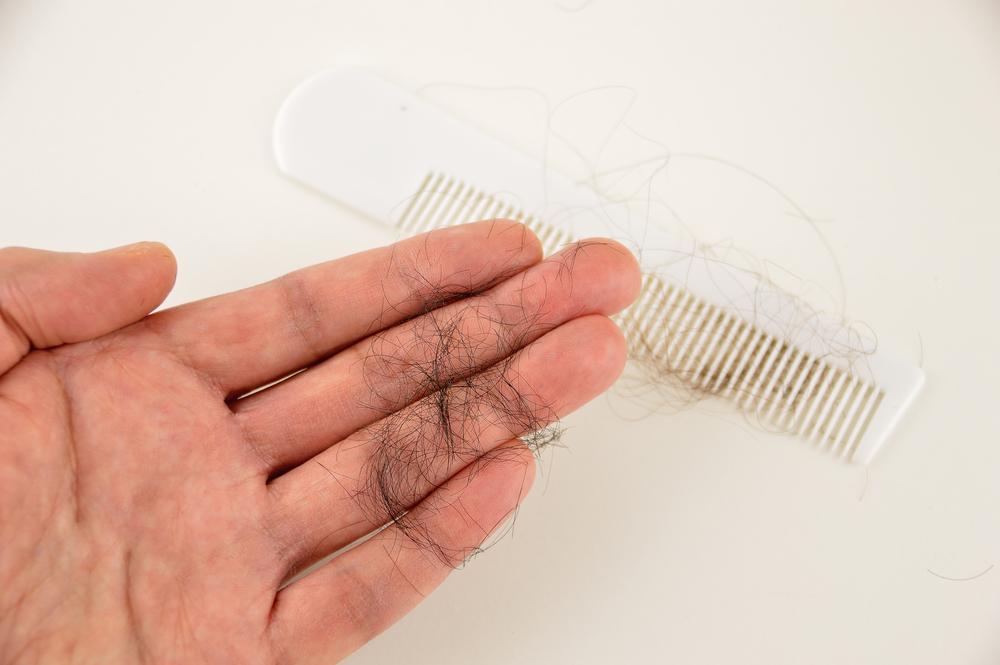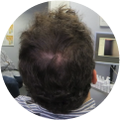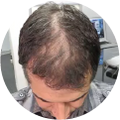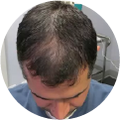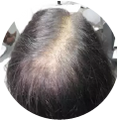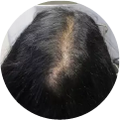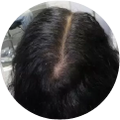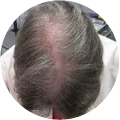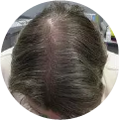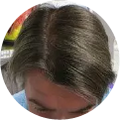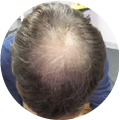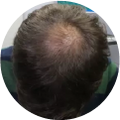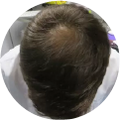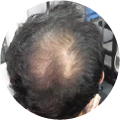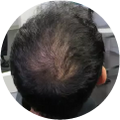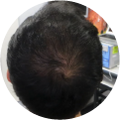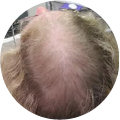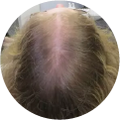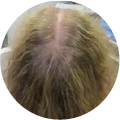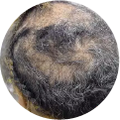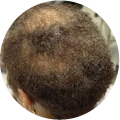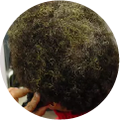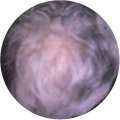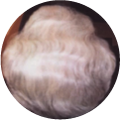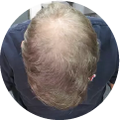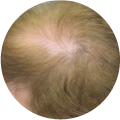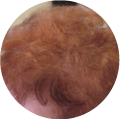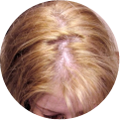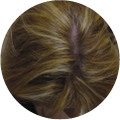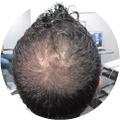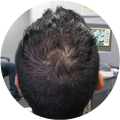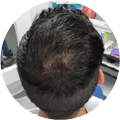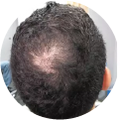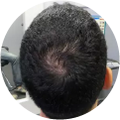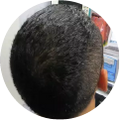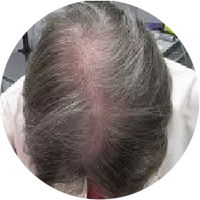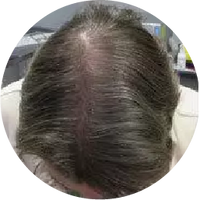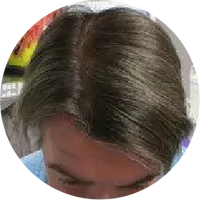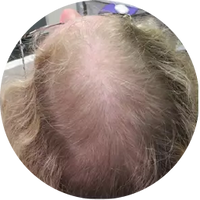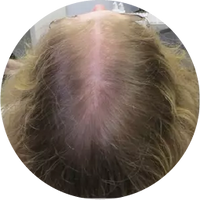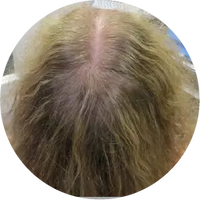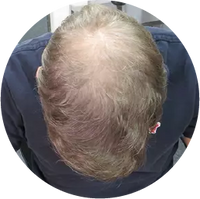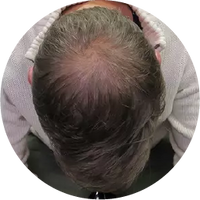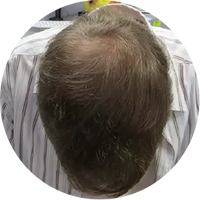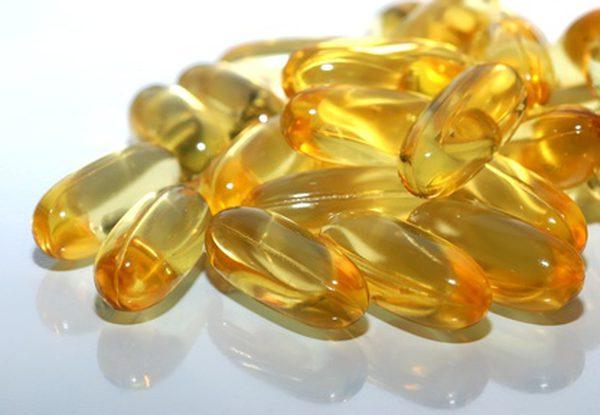
There are many different variables that play a role in the hair growth process and that can disrupt or adversely affect hair health and hair growth. One key component of hair health and the hair growth process that many people are not aware of is the role of amino acids. Amino acids are the building blocks of protein, which are the primary component in hair strands. This means that amino acids are an integral and essential to healthy hair growth. If you are struggling with hair loss or hair thinning, it is important to understand how different components play a role in the hair growth process so that you can adjust your routine accordingly to boost your hair growth and improve your health as much as possible. There are many amino acid hair treatments available as well. To help you understand what amino acids are and how they affect hair growth and hair health, we have put together an information guide that explores amino acids for hair and gives you the information you need to make the best decision for you and your hair to ensure you are getting the amino acids and products your hair needs to be healthy and grow.
Understanding Amino Acids

To understand why amino acids are important to hair growth and hair health, it is vital to understand what amino acids are and how they work. Amino acids are comprised of four main elements: hydrogen, oxygen, nitrogen, and carbon. Amino acids are the foundation of protein. This becomes vital to understand how amino acids are inextricably linked to the hair growth process and how they are related to the larger processes within the human body. Each strand of hair on your head is made out of keratin, which is a type of protein. In addition to this, proteins are what comprise the glands, nails, tendons, ligaments, and muscles in the human body. Amino acids also play an important role in the maintenance and repair of cells and vital biochemical processes within the body that are reliant on proteins. Amino acids provide cells within the human body with the material that they need to maintain their structure and aids these cells in the production of energy that helps to sustain the body. Amino acids are also essential for metabolic function within the body.
Essential vs. Non-Essential Amino Acids
Amino acids can be divided into two main categories: essential and non-essential. Over time, this list has been continually adjusted as more research and studies have been done into the roles of individual amino acids. There are twenty total amino acids in the human body. Below is a breakdown of essential versus non-essential amino acids, and which amino acids fall into each category.
-
Essential Amino Acids: Essential amino acids are defined as amino acids that the body cannot synthesize on its own and must be obtained through diet or supplements. There are ten amino acids that fall into the essential category. If you do not meet the required levels of these ten essential amino acids in your body, it can have an adverse effect on your health and on a number of vital bodily processes. While the body stores excess amounts of fats and carbohydrates that it can tap into if there is a shortage, the body does not often store an excessive amount of amino acids to tap into. This means that it is essential for you to obtain a consistent supply of essential amino acids each day. Below are the ten essential amino acids.
- Isoleucine
- Histidine
- Leucine
- Methionine
- Lysine
- Phenylalanine
- Tryptophan
- Threonine
- Valine
-
Non-Essential Amino Acids:Non-essential amino acids are classified as such because the body is capable of producing these amino acids on its own. The human body can produce these non-essential amino acids by utilizing chemicals that are present in the human body. Below is a list of the ten non-essential amino acids.
- Alanine
- Arginine
- Asparagine
- Aspartic Acid
- Cysteine
- Glutamic Acid
- Glutamine
- Glycine
- Proline
- Serine
- Tyrosine
Amino Acids and The Hair Growth Process
Amino acids play many different roles in the human body, but one of their most important is in the hair growth process. As mentioned above, amino acids are an essential component in the production of keratin, which is the primary building block in hair strands. Hair keratin contains sixteen of the various amino acids. In addition to this, amino acids aid in the creation of red blood cells in the body. This production of red blood cells aids in the delivery of oxygen and nutrients to hair follicles on the scalp, which improves hair health and stimulates healthy hair growth. To have healthy hair and a healthy hair growth process, it is vital that you are getting all of the required amino acids each day.
The Top Amino Acid Benefits for Hair Growth
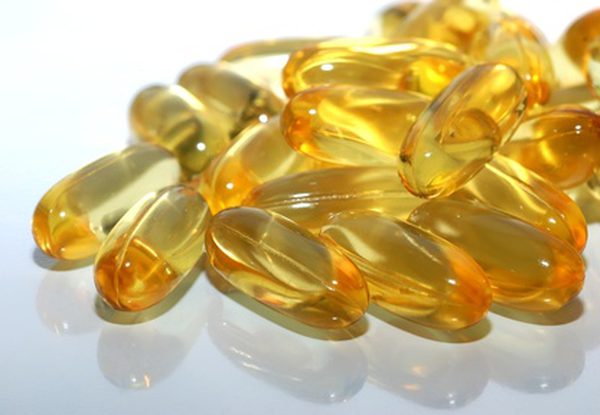
Amino acids play a key role in the production of healthy hair follicles and in the maintenance of overall hair health. To understand how various amino acids affect the hair growth process, we have compiled information about the top amino acids for hair growth. Keep in mind that these are not the only amino acids that play a role in the hair growth process, but a handful of the most closely linked. Below is an overview of how each of these amino acids affects the hair growth process and foods that contain this amino acid.
Arginine
Arginine is one of the amino acids that play a significant role in hair growth. Arginine, which is sometimes referred to as L-Arginine, is a precursor to nitrogen oxide. This is especially important to keep in mind for individuals that are deficient in nitrogen oxide or that are eating a diet that supplies only minimal nitrogen oxide. The reason that Arginine’s ties to nitrogen oxide are important is that arginine helps to generate nitrogen oxide, which aids in the opening of potassium channels within cells. When these potassium channels become opened up, there are a number of other reactions that occur within the body as a result. The opening of potassium channels within cells triggers blood vessels to dilate, which facilitates the movement of blood through the blood vessels and improves circulation. This improvement in blood flow and circulation causes the blood supply to hair follicles to be increased as a result, which helps to stimulate hair growth. Arginine can be found in a number of different food sources, including fish, wheat germ, sunflower seeds, coconut, sesame seeds, hazelnut, and cashews.
Tyrosine
Tyrosine, which is sometimes called L-Tyrosine, is another amino acid that plays a crucial role in the hair growth process. Tyrosine is integral in the production of melanin, which is responsible for the coloration of the skin and hair pigments. In addition to playing a key role in melanin production, Tyrosine also aids nerve cells in communicating properly and is a building block in neurotransmitters that affect mood and nerve cell functions. In addition, Tyrosine aids in the regulation of hormones within the adrenal, thyroid, and pituitary glands in the body. In some cases of hair loss or hair thinning, individuals may find that their hair color will also be affected. This can be caused by stress, and it is important to keep Tyrosine levels within the body stable in order to melanin production to occur consistently. Tyrosine can be found in a number of different food sources, including pumpkin seed, lima beans, dairy and soy products, almonds, and fish.
Methionine
Methionine is classified as an essential amino acid, which means that the body cannot synthesize it on its own and it must be consumed through food or through herbal supplements. Methionine, sometimes called L-Methionine, is a vital amino acid for many functions within the human body, including hair growth. Methionine is predominantly derived from sulfur, which is necessary to manufacture keratin in the hair shaft. In addition, Methionine aids the body in the production of creatine, which is a protein that is vital to muscle growth and energy. Methionine also boosts collagen production within the body, which improves the strength of the hair shaft and the appearance and health of the skin. Methionine is also an antioxidant that may aid in the reduction of hair loss or hair thinning. In addition, Methionine aids in the prevention of fat build-up and helps to break down fat, which aids in increasing circulation to the hair follicles and scalp and arteries. Food sources that are rich in Methionine include Brazil nuts, fish, eggs, and sesame seeds.
Cysteine
Similar to the other amino acids listed above, Cysteine also is referred to as L-Cysteine and contributes to the protein formation process that helps to build hair strands through keratin. Cysteine is a unique amino acid due to its ability to form disulfide bonds in the body. This ability to create disulfide bonds is important to note when examining Cysteine in relation to hair growth because disulfide bonds are what bind the keratin strands within the hair together. This process is what allows the human hair strand to have the fibrous properties that allow it to retain moisture and nourish the hair follicles. This aids in the prevention of dry and itchy scalp. In addition, Cysteine also plays a key role in upholding the thickness and the texture of the hair. To understand the importance of Cysteine in hair growth, it is vital to have a baseline understanding of how each hair is constructed. Each hair strand has a cuticle, cortex, and medulla. The cuticle is the outermost layer of the hair follicle that surrounds the medulla and the cortex. The cortex then surrounds the medulla, which comprises the center of the hair shaft. The medulla is the area of the hair that controls how thick the hair is naturally. The cortex is by far the most prominent layer to note as it makes up eighty to ninety percent of each hair strand. The cortex is made up of keratin molecules that have joined together and gives the hair strands strength. Each of the fibrous filaments of the bound keratin molecules is comprised of roughly seventy-five percent Cysteine, making this amino acid an essential part of the hair growth process. Food sources that Cysteine can be found in include Brussels sprouts, broccoli, chicken, and wheat germ.
The Importance of Diet and How Herbal Hair Supplements Can Help

One of the best ways to get the amino acids your hair needs is to eat a balanced diet of foods that are rich in amino acids. Many people do not realize how significantly diet affects hair health and hair growth. Your hair relies on the nutrients you ingest and that your body naturally produces in order to function correctly. When the body becomes deficient in an amino acid or nutrient that it relies on to function correctly, then adverse effects can arise, such as hair loss, hair thinning, or a decline in overall hair health. Some individuals may also become deficient in certain amino acids, vitamins, or nutrients because of a medical condition. For example, individuals that become anemic, or Iron deficient, can sometimes experience hair loss or hair thinning as a result. To rectify this, it is important to eat foods that are rich in Iron and to integrate a daily Iron supplement into the diet to prevent anemia from occurring. Individuals can also become deficient of amino acids, which can have a ripple effect on the hair growth process. To prevent this, it is vital to consume a balanced, nutrient-rich diet that is comprised of foods that promote healthy hair growth. It is evident there are many hair benefits of amino acids but it is also beneficial to incorporate an herbal hair supplement to help improve hair health and promote healthy hair growth. This is a simple, cost-effective way to boost hair growth and health. Before beginning an herbal supplement, be sure to consult a medical doctor to make sure you are taking the right dose for your height, weight, age, and activity level and to confirm that none of the ingredients in the supplement will interact with any other medications you may be taking. Scalp Med’s herbal hair supplement contains a unique blend of essential nutrients including Saw Palmetto, Beta-Sitosterol, Biotin, essential amino acids, green tea, and more to promote thicker, healthier hair growth.


